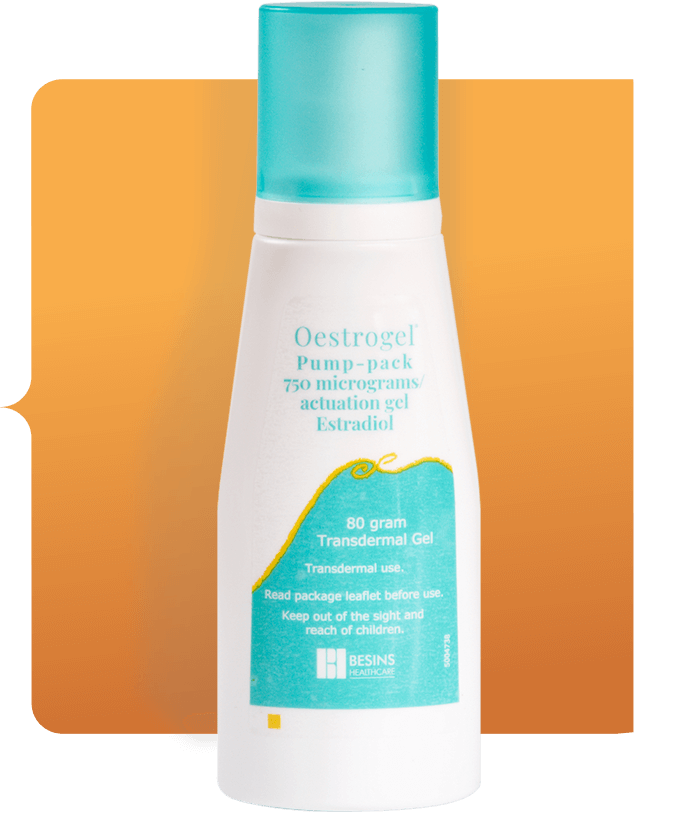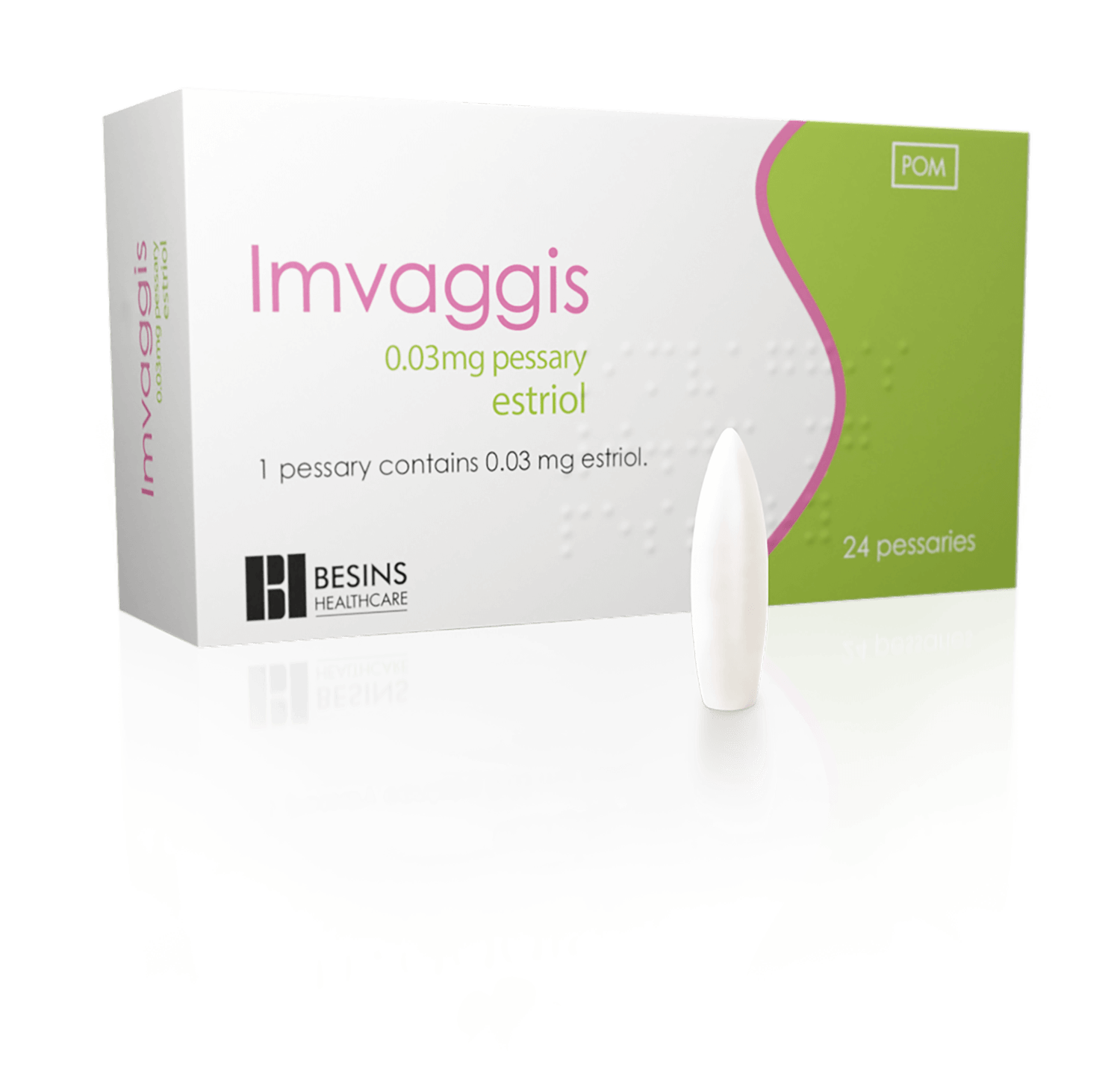For a full list of adverse events please refer to the Summary of Product Characteristics.1
HRT is associated with an increased risk of venous thromboembolism (VTE), however unlike other progestogens, there is no significant association of VTE with micronised progesterone1,26,27,28
In women taking oestrogen plus micronised progesterone, there was no significantly increased risk of breast cancer associated with short durations of use (≤ 5 years)*, when HRT was initiated ≤ 3 years of menopause29
Utrogestan (micronised progesterone) 100mg contains soya lecithin. As there is a possible relationship between allergy to soya and allergy to peanut, people with soya or peanut allergy should avoid using this medicine. For the avoidance of doubt, Utrogestan 100mg does not contain peanut products.1
* Longer duration of use (> 5 years) was associated with statistically significant increase in breast cancer risk for all types of oestrogen – progesterone with the exception of oestrogen + dydrogesterone
Adverse events
Adverse events should be reported. Reporting forms and information can be found at www.mhra.gov.uk/yellowcard or search for MHRA Yellow Card in the Google Play or Apple App Store. Adverse events should also be reported to Besins Healthcare (UK) Ltd, Drug Safety on 0203 862 0920 or email pharmacovigilance@besins-healthcare.com
When used in conjunction with oestrogens, Utrogestan should not be used in patients with any of the following conditions:
• Known hypersensitivity to the active substances, soybean lecithin, peanut or to any of its excipients.
• Known, past or suspected breast cancer
• Known or suspected oestrogen-dependent malignant tumours (e.g. genital tract carcinoma)
• Undiagnosed genital bleeding
• Previous or current thromboembolism disorders (e.g. deep venous thrombosis, pulmonary embolism) or thrombophlebitis
• Known thrombophilic disorders
• Acute liver disease, or a history of liver disease as long as liver function tests have failed to return to normal
• Porphyria
• Cerebral haemorrhage
• Breast-feeding
Please consult the Summary of Product Characteristics for a full list of Warnings & Precautions before prescribing Utrogestan 100mg.
Monitoring Requirements1
For the treatment of postmenopausal symptoms, HRT should only be initiated for symptoms that adversely affect quality of life.
In all cases, a careful appraisal of the risks and benefits should be undertaken at least annually, including appropriate imaging tools in accordance with currently accepted screening practices. HRT should only be continued as long as the benefit outweighs the risk.
Evidence regarding the risks associated with HRT in the treatment of premature menopause (in women <40 years old) is limited. Due to the low level of absolute risk in younger women, however, the balance of benefits to risks for these women may be more favourable than in older women.
Precaution1
Utrogestan 100mg Capsules contain soybean lecithin and may cause hypersensitivity reactions (urticarial and anaphylactic shock in hypersensitive patients). As there is a possible relationship between allergy to soya and allergy to peanut, patients with peanut allergy should avoid using Utrogestan 100mg Capsules. For the avoidance of doubt Utrogestan 100mg does not contain peanut products.
Summary of the safety profile1
The reporting rate of adverse drug reactions with Utrogestan Oral and Vaginal formulations was calculated as 1.43/1,000 patient year’s corresponding to approximately 1.5 spontaneously reported cases in every 1000 patients exposed to Utrogestan (Periodic Benefit Risk Evaluation Report 01 January 2012 – 31 December 2017).
Tabulated list of adverse reactions1
Adverse experiences (> 10%) reported in an 875 patient placebo-controlled trial in postmenopausal women over a 3 year period who received cyclic micronised progesterone capsules, 200mg daily (12 days per calendar month cycle) with daily 0.625mg conjugated oestrogen1
| System Organ Class | Preferred Term | Micronised progesterone capsules 200mg with conjugated oestrogens 0.625mg (n=178) | Conjugated oestrogens 0.625mg (only) (n=175) | Placebo (n=174) |
|---|---|---|---|---|
| Gastrointestinal disorders | Abdominal bloating | 12 | 10 | 5 |
| Abdominal pain | 10 | 13 | 10 | |
| Nervous system disorders | Headache | 31 | 30 | 27 |
| Dizziness | 15 | 5 | 9 | |
| Psychiatric disorders | Depression | 19 | 18 | 12 |
| Reproductive system and breast disorders | Breast tenderness | 27 | 16 | 6 |
| Hot flushes | 11 | 14 | 35 | |
| Vaginal discharge | 10 | 10 | 3 | |
| Miscellaneous | Joint pain | 20 | 22 | 29 |
| Urinary problems | 11 | 10 | 9 |
The information given below is based on extensive post marketing experience, primarily from oral administration of progesterone.1
Adverse effects have been ranked under headings of frequency using the following convention: very common (≥1/10); common (≥1/100; <1/10); uncommon (≥1/1,000;<1/100); rare (≥1/10,000;<1/1,000); very rare (<1/10,000); frequency not known (cannot be estimated from the available data).
| System organ class | Frequency Not known (cannot be estimated from the available data) |
| Gastrointestinal disorders | Abdominal pain Nausea |
| General disorders and administration site conditions | Fatigue |
| Nervous system disorders | Headache
Somnolence Dizziness |
| Reproductive system and breast disorders | Vaginal haemorrhage |
| Skin and subcutaneous tissue disorders | Pruritus |







